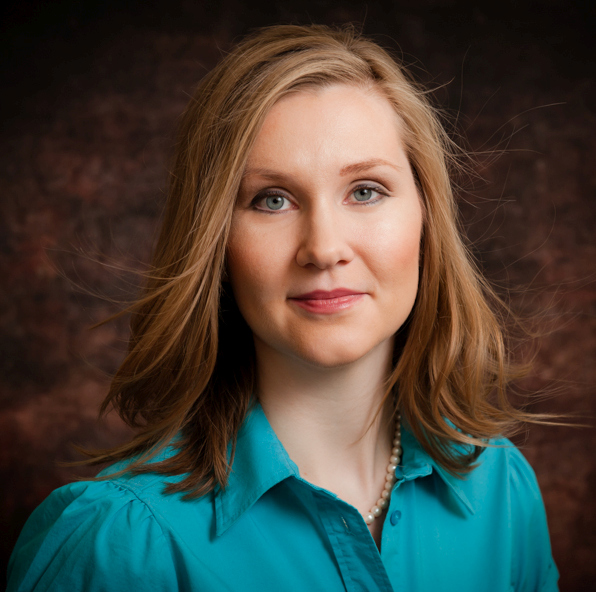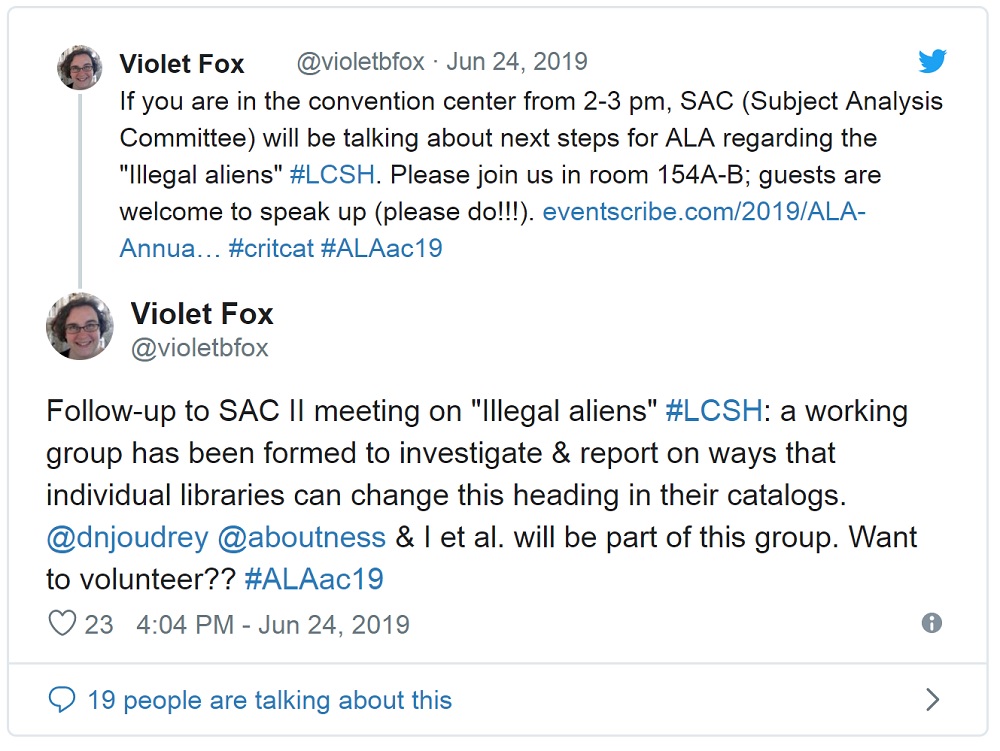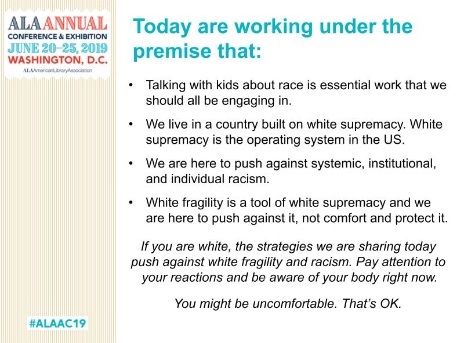The world’s largest library association’s annual conference this year featured more than 100 workshops with an “equity, diversity, and inclusion” theme, according to the American Library Association’s conference catalog. That included workshops with these titles (some shortened): “Creating Queer-Inclusive Elementary School Library Programming,” “Developing an Online Face for a Lesbian Pulp Fiction Collection,” and “Telling Stories, Expanding Boundaries: Drag Queen Storytimes in Libraries.”
The ALA annual conference’s workshop selections also included “A Child’s Room to Choose: Encouraging Gender Identity and Expression in School and Public Libraries,” and “Are You Going to Tell My Parents?: The Minor’s Right to Privacy in the Library.” Politically charged talks and workshops like these formed at least one-third of the conference offerings, according to the ALA’s own description and a review of the conference catalog.
The titles and descriptions of the conference’s approximately 300 workshops and talks were published in a conference app and paper catalog reserved to in-person attendees, many of whose attendance was underwritten by taxpayers through local library budgets. According to the ALA, 21,460 people attended 2019’s annual conference this June, approximately 4,000 more than last year.
The attendee who gave me her conference catalog and mobile app access has told me of internal conflict between her public library employment and Christian faith due to the saturation of this kind of bias in the interconnected library and book publishing worlds. More examples of this extreme bias permeated social media under the conference hashtag, including for some reason having librarians weigh in on U.S. border security and make plans for removing the category “illegal aliens” from their collection catalogs. The conference of course featured bisexual bathroom facilities.
An Obsession on Dividing People Based on Skin Color
A large portion of the “equity, diversion, and inclusion” workshops focused on race. One subdivision of these was for participants in ALA’s Spectrum Leadership Institute, which grants a $5,000 scholarship and $1,500 stipend to attend the ALA conference. White people need not apply. See the application criteria:
A Saturday morning workshop entitled “Talking with Kids about Race: A ‘how to’ workshop” discussed, according to its conference description, “individual and systemic racism, intersectionality, and white fragility, as well as participant-guided topics to give attendees concrete tools and the confidence to address these issues with young people in the communities they serve.”
The slideshow that accompanied the workshop and was available on the conference app told participants that the United States is “a country built on white supremacy. White supremacy is the operating system in the US.” It also states, “If you are white, the strategies we are sharing today push against white fragility and racism. Pay attention to your reactions and be aware of your body right now. You might be uncomfortable. That’s OK.”
The handout for a Friday workshop on “Diversity, Equity, and Inclusion” (DEI) tells participants “Leaders on DEI efforts can always expect pushback on those efforts… pushback happens because effective DEI efforts challenge the status quo, and it can feel threatening to many when we start to change ‘the way things always have been.’ Leaders on diversity, equity, and inclusion must expect and manage this pushback” (emphasis original).
Notice how this encourages librarians to resist feedback from patrons and taxpayers, placing public employees over American citizens and undermining classic American consensuses about public service and government’s proper subjection to the will of the people.
Celebrating Queer Sex with Public Resources, Even for Kids
The workshop titled “Telling Stories, Expanding Boundaries: Drag Queen Storytimes in Libraries” featured Michelle Tea, a lesbian who started drag queen events at a public library in San Francisco. It also featured a “drag queen storyteller” reading to the audience, according to the workshop description.
The description in the conference app says: “The DGS [sic, for Drag Queen Storytime] program has been immensely popular with many audiences at libraries across the country, but it has also produced its share of resistance and controversy. The panel will discuss how DGS was developed and originally implemented, how librarians have been using it today, how institutions have dealt with specific successes and controversies, and how DGS relates to intellectual freedom.”

American Library Association’s Kristin Pekoll
The workshop speakers included ALA’s Kristin Pekoll, the assistant director of the organization’s Office for Intellectual Freedom. Pekoll was active in several workshops dedicated to challenging local communities and patrons’ opinions about appropriate taxpayer-provided materials and events. Another included librarians discussing how they handled patron complaints about a Black Lives Matter display in the children’s department, a Banned Books Week display, and a librarian-provided LGBTQ reading list for teens. These patron objections were treated as attempts at “censorship.”
A visual from Pekoll’s office says one of the five main kinds of “censorship” is “requiring parental permission to access content.” On another panel she participated in, another public librarian who initiated a drag queen story time gave audience members advice about how to overcome community objections to such events, according to a writeup of the event in Library Journal.
Larson shared her library’s effort to create and promote Drag Queen Story Time. Within an hour of the event being featured in the library’s newsletter, complaints arrived via phone and emal [sic]. After the event was picked up by conversative [sic] news outlets, calls started coming in from across the United States. As a result, the library coordinated with local police for added security during the process.
When planning programs, Larson advised librarians to make sure that reference and circulation staff are supported; have a prepared statement about how a program supports the library’s values. Be clear in your goals and prepare stakeholders, such as a Board of Trustees. After the success of their first event, they hosted more without incident.
The ALA also provides librarians “crisis communication plans” to shield themselves from altering events or materials they provide with public resources that generate a public backlash, such as the drag queen story hours. A third librarian who hosted drag queen story hours, this time in a Philadelphia-area public library, told the audience the ALA helped him resist community objections to the events.
The June 24th workshop on “Creating Queer-Inclusive Elementary School Library Programming” discussed “ways to dismantle barriers” to such programs, including “crafting arguments,” “reviewing legislation,” and “listing talking points.” The description makes it clear that the workshop is not about only selecting books on this topic but also creating “services and programs.” Please note: The title says elementary school. That’s children younger than 13.
One of the presenters for this workshop, Lucy Santos Green, is the incoming chairwoman for the Educators of School Librarians section of the American Association of School Librarians. Let that one sink in. Then juxtapose it with the description of the workshop about underage children’s “privacy rights” from their parents, which “explore[d] positive and proactive ways that libraries can protect minors’ privacy and confidentiality” and insisted children “have a right to privacy and confidentiality in what they read and view in the library.”
At still another ALA conference workshop, participants brainstormed a list of book recommendations featuring “non-trad families,” which included the titles “My Brother’s Husband” and “Pregnant Butch.
All these people, and this large organization that serves almost exclusively public institutions, clearly feel completely comfortable broadcasting their cheerful feelings about queer sex — and other extremely politicized and controversial subjects — in public. Have any of them ever stopped to think about how their decision to do so may contribute to some of the polarization, alienation, and anger Americans are experiencing towards each other currently?
Are all these supposedly well-read people completely ignorant of the fact that the majority of the world’s religions and religious adherents, which comprise the clear majority of the world today, plus the vast majority of cultures in world history, consider the kind of behavior they’re cheering depraved, damaging to children, self-harming, and socially destructive?
At least half of America does not agree with bisexual bathrooms or denying opportunities to white people based on their skin color. They are not on board with “queering” public elementary school libraries. How can we trust these librarians’ judgment and management of public resources after seeing this kind of bias, which is extreme to the point of open hostility against our deepest values?
ALA’s leaders and workshop approval committees don’t have to agree, of course. But could they at least, as the would say, engage in a bit of perspective-taking? Or would they prefer to continue abusing the public trust placed in them and the public institutions they influence? What do they think will be the outcomes of that decision?
 Joy Pullmann (@JoyPullmann) is executive editor of The Federalist, mother of five children, and author of “The Education Invasion: How Common Core Fights Parents for Control of American Kids.” Her latest ebook is a list of more than 200 recommended classic books for children ages 3-7 and their parents.
Joy Pullmann (@JoyPullmann) is executive editor of The Federalist, mother of five children, and author of “The Education Invasion: How Common Core Fights Parents for Control of American Kids.” Her latest ebook is a list of more than 200 recommended classic books for children ages 3-7 and their parents.





 RSS - Posts
RSS - Posts